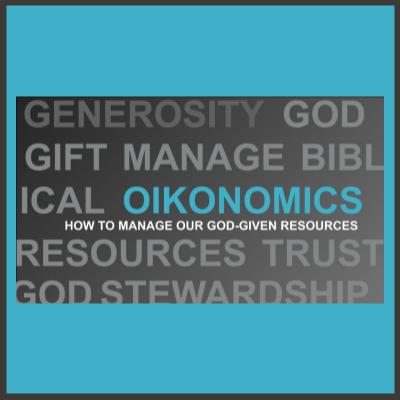Matthew 25:14-29 – 3 of 4
SERMON SUMMARY
Daniel Webster once was asked: “What is the most profound thought that has ever entered your mind?” Do you know how he responded? He said, “The most important thought I have ever had was that of my individual responsibility to God.” In fact, when he made that statement, he became so emotional that he had to excuse himself. When he returned, he spent the next 30 minutes talking about the responsibility he felt of managing the resources that God had entrusted to him.
When it comes to our responsibility to manage our God-given resources, many of us haven’t accepted the fact that God is the rightful owner of all that we possess. This is the starting point for any discussion on money management. We assume that because God has given us cars to drive, houses to live in, and a bank account to draw upon, that somehow, we are the owner of those things. It is just not true. God owns it all and the owner has the rights, and the steward has the responsibilities. We are to use our God given resources to advance God-given goals (Matthew 25:14-19).
When I truly begin to believe that God owns everything, whether I have a lot or a little, whether my bank account is moving up or moving down, I maintain a steady course. If I truly believe God owns everything and I have a financial setback—let’s say that I lose a job—I am not as likely to dip down into the depths of despair because I understand that what I lost, I never owned anyway. It belongs to God. As Job said, “The Lord gives, and the Lord takes away. Blessed be the name of the Lord.”
Every spending decision is a spiritual decision. You can’t fake stewardship. Your checkbook reveals all that you really believe about stewardship. A person who has been a Christian even for a short while can fake prayer, Bible study, and going to church, but he can’t fake what his checkbook reveals. Maybe that’s why so many of us are so secretive about our personal finances. Jesus said, “Where your treasure is, there will your heart be also.” If you really want to know what you value in life, follow the money trail. Take a look at your checkbook.
God uses money and possessions to prepare us for His coming Kingdom (Matthew 25:20–23). If we demonstrate faithfulness in handling the resources God entrusts to us, he will entrust us with much more in the future (Luke 16:10–12). Worldly wealth is a tool. God uses money to get our attention. He gives and he takes away. He uses money and possessions as a tool to shape us in our Christian life—to help us grow in our trust and faithfulness.
It also is a test to see if He can trust us with more. Finally, wealth is a testimony. As Christians, one way we should distinguish ourselves is by our attitude toward the things God entrusts to us. How much we have isn’t the issue. We may be the richest person on the block or maybe the poorest. It is how we manage our God-given resources that should distinguish us from our neighbors. Good stewards are rewarded, poor stewards are disciplined. Stewardship requires responsible action. Are you being a faithful steward of God’s possessions? What evidence do you have that leads you that conclusion? What steps could you take to improve your stewardship?
APPLICATION / CHALLENGE
Keep these four principles in mind:
- God owns it all. We are owners of nothing; stewards of everything.
- We are to use our God given resources to advance God-given goals.
- God uses money and possessions to prepare us for His coming Kingdom.
- Stewardship requires responsible action.
TAKE ONE STEP
Each week, write down one doable concrete step of obedience, small or large, that you will put into practice this week. (James 1:22: “But prove yourselves doers of the word, and not merely hearers who delude themselves.”)


